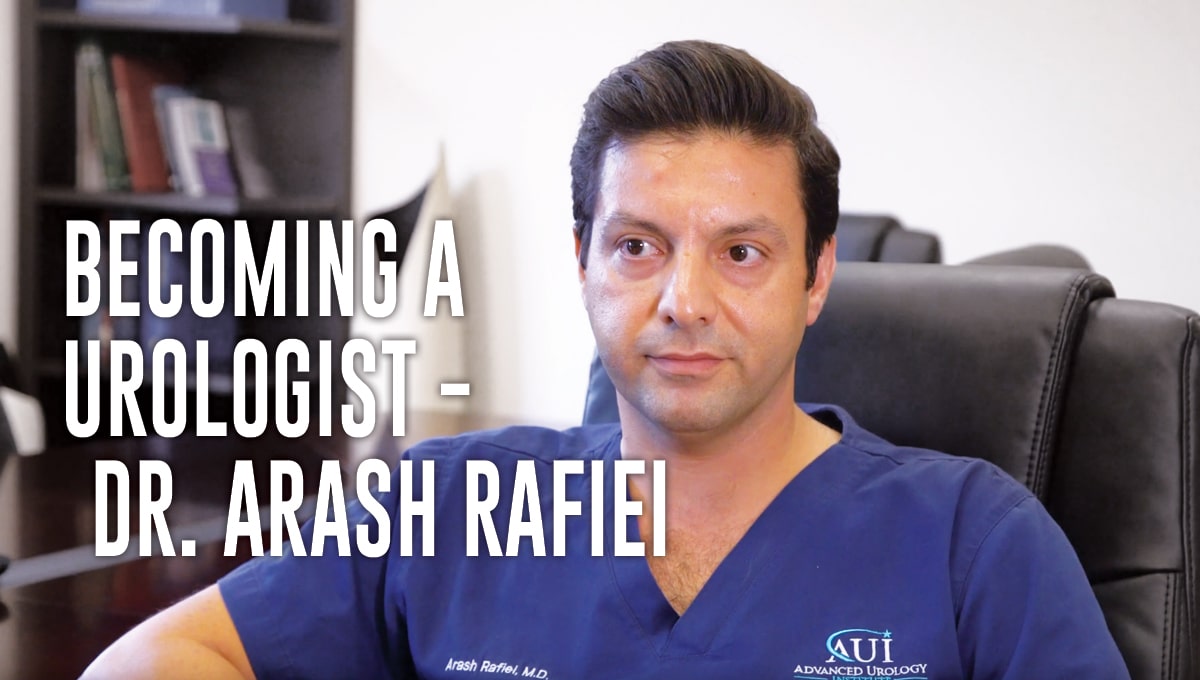Dr. Brian Hale of Tampa, FL discusses the common surgeries he performs including kidney stone removal, prostate surgery, and cancer treatment.
Continue readingWhy Did Dr. Brian Hale Choose Urology as a Specialty?
Dr. Brian Hale: One of the nice things about urology is that most of the patients we see we can actually treat and help.
Continue readingFind Top Urologists Near You in Tampa, FL
How Did Dr. Brian Hale Become a Urologist?
Dr. Brian Hale of Tampa, FL talks about his journey to becoming a urologist at Advanced Urology Institute.
Continue readingThe Enjoyment of Being a Urologist
Urology is a wonderful specialty, being at the same time a surgical and medical practice. It offers an interesting mix of work in both the office and the operating room.
“For many of us, we enjoy spending time in the operating room—after all, we are surgeons by trade,” says Dr. Scott B. Sellinger, FACS, a board-certified urologist at Advanced Urology Institute. “But for many of us, we also enjoy interactions with our patients in the office. I love to see my folks, especially the ones I’ve been seeing for the past 25 years. They come back every year and we can chat about all kinds of things.”
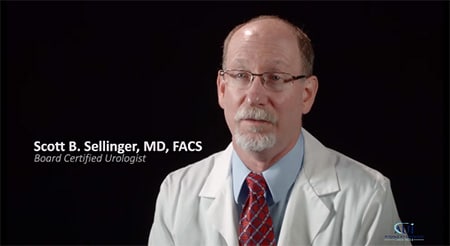
Interesting surgical techniques
While most urology patients are followed long-term with medical interventions, at least half of them are surgical patients. The subspecialty of urology offers great opportunities to practice the surgical side of the profession, which includes the hands-on application of the latest technology, such as robots and lasers. “I enjoy the surgical side of our profession, and urology offers innovative techniques and technology that makes surgical procedures even more interesting,” says Dr. Sellinger.
Long-term relationships
The opportunity to build lasting doctor-patient relationships makes urology gratifying.
“As a urologist, you get to care for the entire spectrum of age groups of patients, such as children with congenital problems and patients in their declining years, when a lot of urologic problems tend to set in.” says Dr. Sellinger. “I like the fact that I see different patients every day, delve into their emotional problems, and with empathy, provide the support and solutions they need. I also enjoy speaking with the patients I see every year for several years since every time they come in they have something great to share,” he adds.
Tackling embarrassing problems
Urology brings relief to patients with personal and sometimes embarrassing medical problems. Through surgery, medications or both, urologists resolve these issues and improve the quality of life of their patients, which is quite appealing.
“As a urologist, not only do I treat life-threatening conditions like cancer, I also improve the quality of life of patients by freeing them from sexual dysfunction or incontinence,” says Dr. Sellinger.
Great outcomes
Unlike some other specialties, the treatments offered by urologists often provide quick relief and good outcomes. In fact, most patients treated by urologists do well and get better.
“Nowadays, urology is quite advanced, and we have at our disposal medicines, surgery, and the combination of both treatments that render our patients improved soon after they interact with us,” says Dr. Sellinger. “So we feel satisfied and secure in the knowledge that we can solve most, if not all, of the urologic problems,” he adds.
Because of consistently great results, urologists are held in high regard by their patients, who are usually grateful for the care. In turn, this gives a kind of satisfaction to urologists.
“I am happy that I chose urology. I’m always filled with joy every time patients come back to thank me for what I’ve achieved for them,” says Dr. Sellinger. “If I were to start all over again, I would still choose to become a urologist.”
Personalized, compassionate care
Want to have your urological problem treated by an effective urologist? AUI is a medical group with a long history of providing comprehensive, high-quality care. The urologists at AUI find it a joy to work in an environment that brings out the best of their knowledge and experience for the benefit of their patients.
Whether you have kidney, urinary tract, prostate, pelvic or other urological needs, at AUI you will find a urologist who can deliver the right treatment for you. For more information on the diagnosis and treatment of urological conditions, visit the Advanced Urology Institute website.
Becoming a Physician Assistant – Chelsie Ferrell, PA-C
A successful medical team has several positions. One of these positions is the physician assistant. Also referred to as a PA, a physician assistant is a trained medical professional whose education takes less time to complete than a doctor’s. Chelsie Ferrell, PA remembers the first time she shadowed another physician assistant and decided it was the career for her. According to Chelsie, “I met a really great PA and loved her job, and I fell in love with the profession.” After becoming a PA, her career path led her to urology.
Urology is a specialized medical field that focuses primarily on the male and female urinary systems and the male reproductive system. Because of how many different organs are involved in the urinary system, urology covers a wide range of medical issues for both men and women.
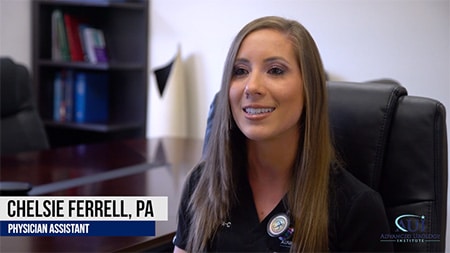 One reason men see a urologist is to check for prostate cancer. Prostate cancer is the most common form of cancer that affects men. As they age and their likelihood of developing the disease increases, regular prostate cancer screenings by a urologist become increasingly important. If cancer is found, the urologist will discuss treatment options with the patient. Some non-aggressive cases can be treated simply by monitoring the cancer. Others cases may need to be treated with surgery or radiation therapy.
One reason men see a urologist is to check for prostate cancer. Prostate cancer is the most common form of cancer that affects men. As they age and their likelihood of developing the disease increases, regular prostate cancer screenings by a urologist become increasingly important. If cancer is found, the urologist will discuss treatment options with the patient. Some non-aggressive cases can be treated simply by monitoring the cancer. Others cases may need to be treated with surgery or radiation therapy.
For women, urinary tract infections (UTIs) are a common reason to see a urologist. UTIs are infections that flare up in any part of the urinary system, including the kidneys, bladder or urethra. Symptoms can vary between patients, with the most common symptoms being intense pain, frequent need for urination, nausea and vomiting. Although easily treated with antibiotics, UTIs are known to be a recurring problem for some women.
Physician Assistants are important urology team members who help doctors and patients as they work together to achieve the best possible outcome in medical care. They have the satisfaction of knowing that the work they do can make a positive change in a patient’s life. Their work can even be life-saving when it results in the early detection of prostate cancer. The Advance Urology Institute relies on committed staff members like Chelsie Ferrell, PA to provide quality patient care.
Becoming a Urologist – Dr. Howard Epstein MD
Medical School
After completing the required subject courses, students take the Medical College Admission Test (MCAT) and complete medical school applications. Applicants then must pass face-to-face interviews with professors who are medical doctors and have just one question: “Would I want this person to be my doctor?”
Once admitted to medical school, the future urologist can look forward to a program that will last at least four years, including grueling residency requirements and more exams. Upon completing exams, the student is a doctor, but merely graduating from medical school does not make a urologist!
Urology Studies
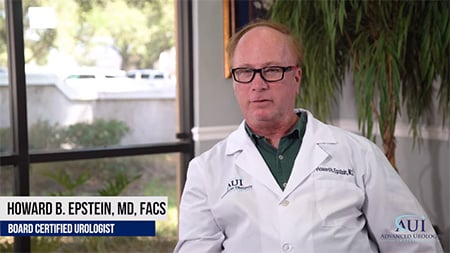 There is yet another exam called the American Board of Urology (ABU) Qualifying Examination, Part 1. Then the future urologist must complete five more years of schooling and residency practice. During this time, the new doctor must learn general surgery, surgical critical care, trauma, colorectal surgery, transplantation and plastic/reconstructive surgery. Also during this time, at least four years of clinical urology training are required. After all of that has been completed, the doctor must pass the ABU Certifying Exam (Part II) to become an ABU certified urologist.
There is yet another exam called the American Board of Urology (ABU) Qualifying Examination, Part 1. Then the future urologist must complete five more years of schooling and residency practice. During this time, the new doctor must learn general surgery, surgical critical care, trauma, colorectal surgery, transplantation and plastic/reconstructive surgery. Also during this time, at least four years of clinical urology training are required. After all of that has been completed, the doctor must pass the ABU Certifying Exam (Part II) to become an ABU certified urologist.
There are a few medical programs that can shorten this process of nine years of graduate school, but they are not accepted in every state.
Re-certification as a urologist must occur every ten years. To continue as a licensed medical doctor, one must do a certain amount of continuing education credits each year. The learning never ends.
Urologists must learn how to examine and treat a large number of different disorders. They work with all kinds of diseases and injuries related to the urinary tract. The urinary tract includes the kidneys, ureters, the adrenal glands, the related arteries and veins, the bladder and the urethra. Urology also includes the male reproductive system, which means urologists also treat issues concerning erectile dysfunction.
The urinary tract is one of the most important parts of the body. It regulates which chemicals, vitamins, minerals and gasses go to every part of the body. While the urinary tract does not regulate what goes into the body, it does regulate what comes out, at least as urine, and ensures that blood composition is just right.
Dr. Howard Epstein
Dr. Howard Epstein did not have a traditional course of undergraduate studies for medical school. His first university degrees were a dual-major in electrical engineering and business administration. From friends who were in medical school, he discovered that he was more interested in their work than in the fields for which he had degrees, so he went back to school.
Dr. Epstein has been practicing medicine since 1984. He is a board certified urologist with the American Board of Urology, a fellow of the American College of Surgeons and a member of the American Urological Association. He is also with the Florida Urologic Association. Serving as the chief of urology at the Gainesville Veteran Administration Medical Center increased his awareness of the unique needs of American veterans. He currently practices medicine at the Advanced Urology Institute’s two offices in St Augustine, Florida at the Southpark and Tuscan locations. To contact Dr. Epstein or for more information, visit the Advanced Urology Institute website.
Becoming a Urologist with Amar Raval, MD
A urologist plays an important role in healthcare. The field of urology encompasses many issues that people face throughout their lives, especially as they start to age. As urologist Dr. Amar Raval notes, urology allows him the opportunity to “provide a service to others.” As a urologist he gets to make a positive impact on his patients’ lives by helping them with many of the common issues that prompt people to seek medical help.
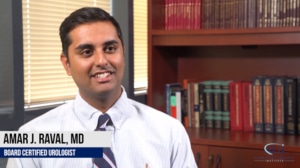 One common problem is kidney stone disease. Kidney stones form for a variety of different reasons. They are particularly common in warm climates, like Florida. Symptoms can vary, but they include severe abdominal pain, nausea, fever, chills, difficulty urinating or blood in the urine. Kidney stones can be very painful and some people need assistance to pass them. A urologist can assess the stones and determine the best way to remove them. In some cases, experienced urologists can break up the stones using a shock wave treatment that is totally noninvasive.
One common problem is kidney stone disease. Kidney stones form for a variety of different reasons. They are particularly common in warm climates, like Florida. Symptoms can vary, but they include severe abdominal pain, nausea, fever, chills, difficulty urinating or blood in the urine. Kidney stones can be very painful and some people need assistance to pass them. A urologist can assess the stones and determine the best way to remove them. In some cases, experienced urologists can break up the stones using a shock wave treatment that is totally noninvasive.
Urologists also frequently see cases of prostate cancer, one of the most common cancers for men. The disease comes in many different forms, making each case unique. While some need to be treated with surgery, chemotherapy or radiation, other forms are non-aggressive and can be left alone. Urologists also may recommend cutting-edge technologies like HIFU. Whatever the diagnosis, it is important to work with your urologist to monitor your prostate and find the best treatment plan for you.
Urinary incontinence is a common problem that many patients are embarrassed to discuss with their doctor. A urologist deals with many patients experiencing urinary incontinence and is accustomed to having in-depth conversations with their patients about incontinence. They know how to discuss the problem with patients so they feel comfortable while also finding the underlying issue causing the incontinence. Whether it is caused by stress, infection, lifestyle or another issue, a urologist can find the best solution and help a patient maintain a healthy and confident life.
There are countless other issues that bring patients to see a urologist for help. Dr. Amar Raval at the Advanced Urology Institute is one of many dedicated urologists improve their patients’ quality of life. For more information, visit the Advanced Urology Institute website.
What Do Physician Assistants Do? – Mikhail Lezhak, PA
Ask Mikhail Lezhak what physician assistants do and you may be surprised by the answer. In the past, all professional medical care was performed by doctors and nurses. But doctors and nurses often spent a lot of time doing repetitive work that limited the time they had to focus on their specialty.
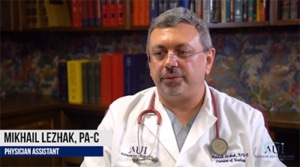 Physician assistants, especially those in urology, may be called upon to do any of these things to assist the doctor:
Physician assistants, especially those in urology, may be called upon to do any of these things to assist the doctor:
- Patient history checks, both directly with the patient and with recorded medical records. They will review records and update records. Based on what they learn, they will brief their supervising physicians about anything noteworthy
- Perform physical exams. They can do the basic exams, but they also are trained to spot symptoms that require more advanced medical care
- Order and interpret basic laboratory tests
- For many relatively minor types of injuries, they may be qualified to handle the direct treatment
- Assist surgeons doing surgical procedures
- Perform minor surgical procedures, including suturing (making stitches); immunizations and injections; setting up, monitoring and removing intravenous feeds
- Perform preoperative and postoperative care, including managing infection prevention
- Prescribe medications as permitted
- Provide patient counseling on medical issues, including self-care and follow-up
- Set up health management plans and diets
- Assist in maintaining a healthy, safe and sanitary healthcare environment, in accordance with health laws, regulations and accepted medical practices
- Help maintain the proper stocks of medical supplies
- Work with administrators and administrative staff to assure a more smoothly operating medical care environment
Essentially, PAs perform tasks that free up their supervising doctors for more difficult and complicated health issues. If this job sounds a lot like what nurses do, you are right. There is considerable overlap of responsibilities within medical communities.
In Florida, physician assistants do have a limited ability to prescribe and dispense medications. The ability for PAs to prescribe drugs is based on a written agreement between the PAs and their supervising board-certified doctors. That written agreement must have the following:
- Effective for only five years, whereupon a new license is required
- Requires the PA to take 10 continuing medical education credits before each license renewal period, including three hours about safe and effective prescribing of controlled substances
- Only effective with that one PA-doctor agreement; it must be remade if the supervising doctor changes
- Filed with the Florida Board of Medicine
There are some drugs that a PA cannot prescribe. For example, a PA working in urology cannot prescribe many of the same drugs that a PA working in psychiatry would prescribe, and vice-versa. Thus, there is local accountability for physician assistants within Florida about how they handle drugs.
Supervising doctors may have their PAs handle such duties as researching new medical device company products and keep the doctors advised on new drug formularies. PAs may be asked to scan medical journals for interesting issues as well as follow interesting and related legal cases involving their profession. They may help in medical research.
Just like nurses and nurse practitioners, PAs help the system run more smoothly by letting those who specialize spend more time on their side of the practice. The doctors can function more professionally as medical experts, and administrators can spend more time working with business management.
When you see Mikhail Lezhak, PA, at Advanced Urology Institute, you are seeing someone who has a wealth of training and experience in many of the same functions performed by a licensed medical doctor. Rest assured that your doctor still has you in good hands when your visit is with a medical professional who is a PA. For more information about physician assistants, visit the Advanced Urology Institute website.
How Did Janelle Bunce, PA Become a Physician Assistant?
Becoming a Physician Assistant with Quynh-Dao Tonnu, PA-C
While certified physician assistants (PA-C) are not the same as American Medical Association board-certified medical doctors, they are competent medical professionals. Physician assistants often go into medicine later in life, having already worked in other occupations.
 Certified physician assistants go through a rigorous graduate-level training program that takes more than two years to complete. The degree program must be accredited by both the Committee on Allied Health, Education and Accreditation, and the Accreditation Review Commission on Education for the Physician Assistant. After successful completion of the academic portions, the graduates must pass the national Physician Assistant National Certifying Exam. The final stages include formal application with the Florida Board of Medicine and completion of 2,000 hours (about one year) of supervised clinical practice.
Certified physician assistants go through a rigorous graduate-level training program that takes more than two years to complete. The degree program must be accredited by both the Committee on Allied Health, Education and Accreditation, and the Accreditation Review Commission on Education for the Physician Assistant. After successful completion of the academic portions, the graduates must pass the national Physician Assistant National Certifying Exam. The final stages include formal application with the Florida Board of Medicine and completion of 2,000 hours (about one year) of supervised clinical practice.
Physician assistants are important within medical practices because they relieve the physicians of much of the routine workload. They take medical histories and, because of their medical training and experience, they are able to notice when a patient has a special issue the primary physician should be aware of. They can understand medical histories written by other medical professionals and understand their patients’ backgrounds. For example, some fad diets can seriously affect a person’s digestive system, kidneys, urinary tract and bladder. An experienced PA knows when to ask patients if they have been on such diets.
With a solid understanding of pharmaceutical medicine, physician assistants can prescribe medications or recommend that the physician prescribe certain types of medications. PAs also approve prescription refills according to the physician’s practice and standard medical guidelines. If a patient has questions about how and when to take medications, PAs can give that information.
Quynh-Dao Tonnu, PA-C started her post-secondary education at the University of Florida, where she received her BA in Economics in 2005. Later in 2007, she completed a master’s degree at the University of South Florida in Library and Information Science. After that, she worked in hedge fund accounting, which she found interesting but not very personally fulfilling. In 2014, she changed occupations to become a medical assistant. She realized her most fulfilling job experiences involved working with people, so she went back to school and obtained her Physician Assistant degree in 2017. She has been working in urology for three years and is now fully certified. You can meet this talented PA at the Advanced Urology Institute Oxford office. For more information, visit the Advanced Urology Institute website.
Why Urology? with Dr. Bill Vanasupa
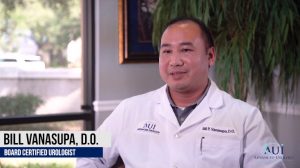 Dr. Bill Vanasupa thought he wanted to be a family practice doctor, seeing and growing with the same patients throughout his career. However, when he was an intern he discovered that although family practice is rewarding in its own way, it was not the right choice for him. When he assisted in surgery as part of his training, he discovered an aspect of medical care that he felt was his calling.
Dr. Bill Vanasupa thought he wanted to be a family practice doctor, seeing and growing with the same patients throughout his career. However, when he was an intern he discovered that although family practice is rewarding in its own way, it was not the right choice for him. When he assisted in surgery as part of his training, he discovered an aspect of medical care that he felt was his calling.
However, Dr. Vanasupa also knew about the challenges of practicing in certain fields of surgery, and he found himself considering where he could best serve patients with both surgical and non-surgical treatments.
As luck would have it, Dr. Vanasupa had a friend in college whose father was a urologist. He spoke to his friend’s father and a career in urology seemed like a good fit for him. Urology would allow him to create lifelong relationships with patients while also performing surgeries and keeping a desired work-life balance. By assisting patients with their urology problems, Dr. Vanasupa has the opportunity to create great patient relationships that last for years.
Today, Dr. Vanasupa is living his dream at Advanced Urology Intstitute by helping people by offering the most advanced medicine and surgical techniques available in the medical field of urology.
How Did Dr. Rolando Rivera Become a Urologist?
Becoming a Urologist – Dr. Arash Rafiei
Requirements To Become a Urologist
Like Dr. Arash Rafiei, all urologists are required to complete at least three years of college before they enter medical school. Most students complete four years of college with a Bachelor of Science in Chemistry or Biology. After graduation from medical school, the urologist-in-training will complete a residency at a hospital, usually one with a specialty in urology. The residency is a minimum of five years. Time during residency may be split in some programs as two years in general surgery residency and three years in urology. Board certification takes another two to five years. So, effectively, urologists can expect to spend 13 years in study or residency before board certification.
Selecting Your Urologist
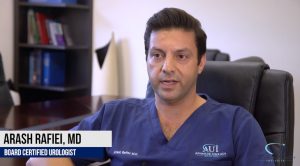 When choosing a urologist, you can specify that you would like a board certified doctor for your urology treatment. Make sure you write down all your questions for the doctor, and seek someone who will take into consideration your individual preferences. Ascertain that the facility and medical staff keep up to date on the latest technologies, such as minimally invasive techniques, as well as proven treatment guidelines.
When choosing a urologist, you can specify that you would like a board certified doctor for your urology treatment. Make sure you write down all your questions for the doctor, and seek someone who will take into consideration your individual preferences. Ascertain that the facility and medical staff keep up to date on the latest technologies, such as minimally invasive techniques, as well as proven treatment guidelines.
What does a Urologist do?
Urologists are medical doctors who specialize in the male and female genitourinary tract, including the urinary bladder, urethra, kidneys, adrenal glands and male reproductive organs. They often diagnose and treat male fertility, prostate cancer, and receive ongoing training in other medical and surgical problems related to these organs.
Advanced Urology Institute is a center for excellence in urology with board-certified specialists to treat all areas of this field. If you need an appointment with a urologist in Orange City, Florida, our team specializes in:
- prostate cancer treatment
- kidney stones
- problems with the bladder, including overactive bladder
- prostatitis
- erectile dysfunction (ED)
- urinary tract infections
- general urology
- and other urology conditions.
Dr. Arash Rafiei, MD is board certified and a member of the American Urological Association, the American College of Surgeons, and the Iranian American Medical Association. For more information, call the office of Dr. Rafiei at (386) 774-2121 or call one of our many Advanced Urology Institute locations. Our doctors will answer your questions and deliver the best service and care based on your needs.



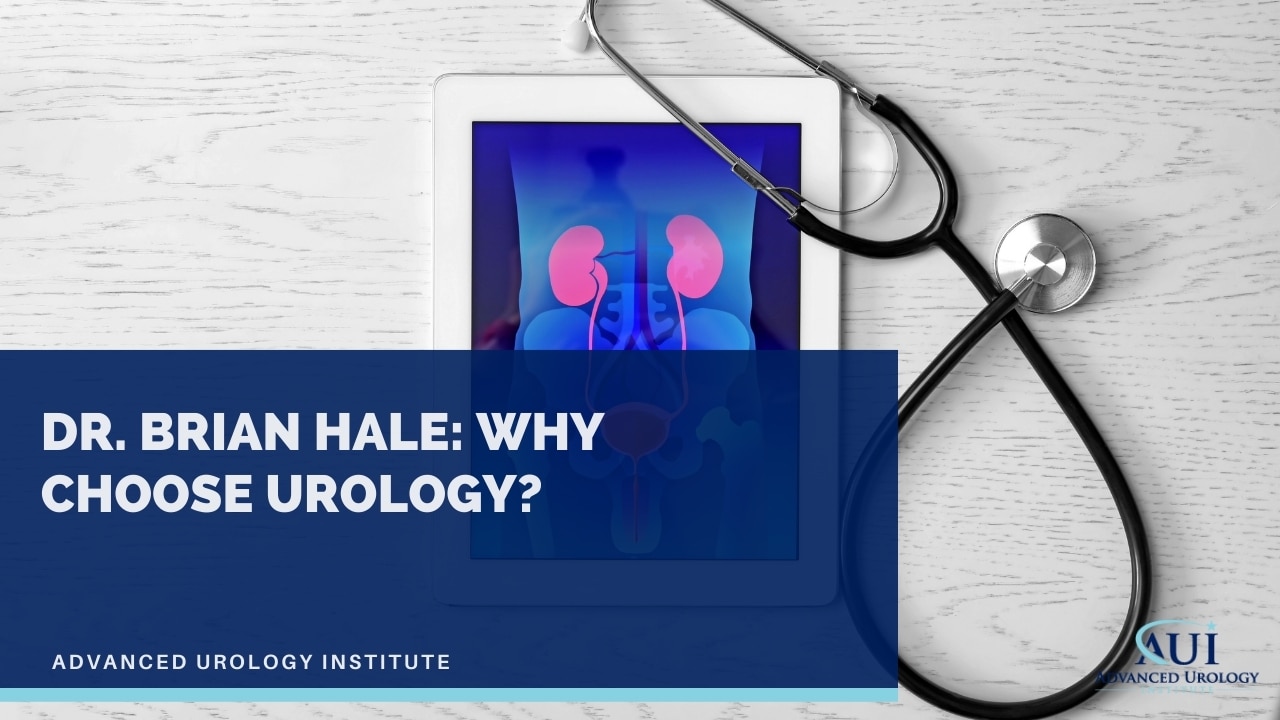


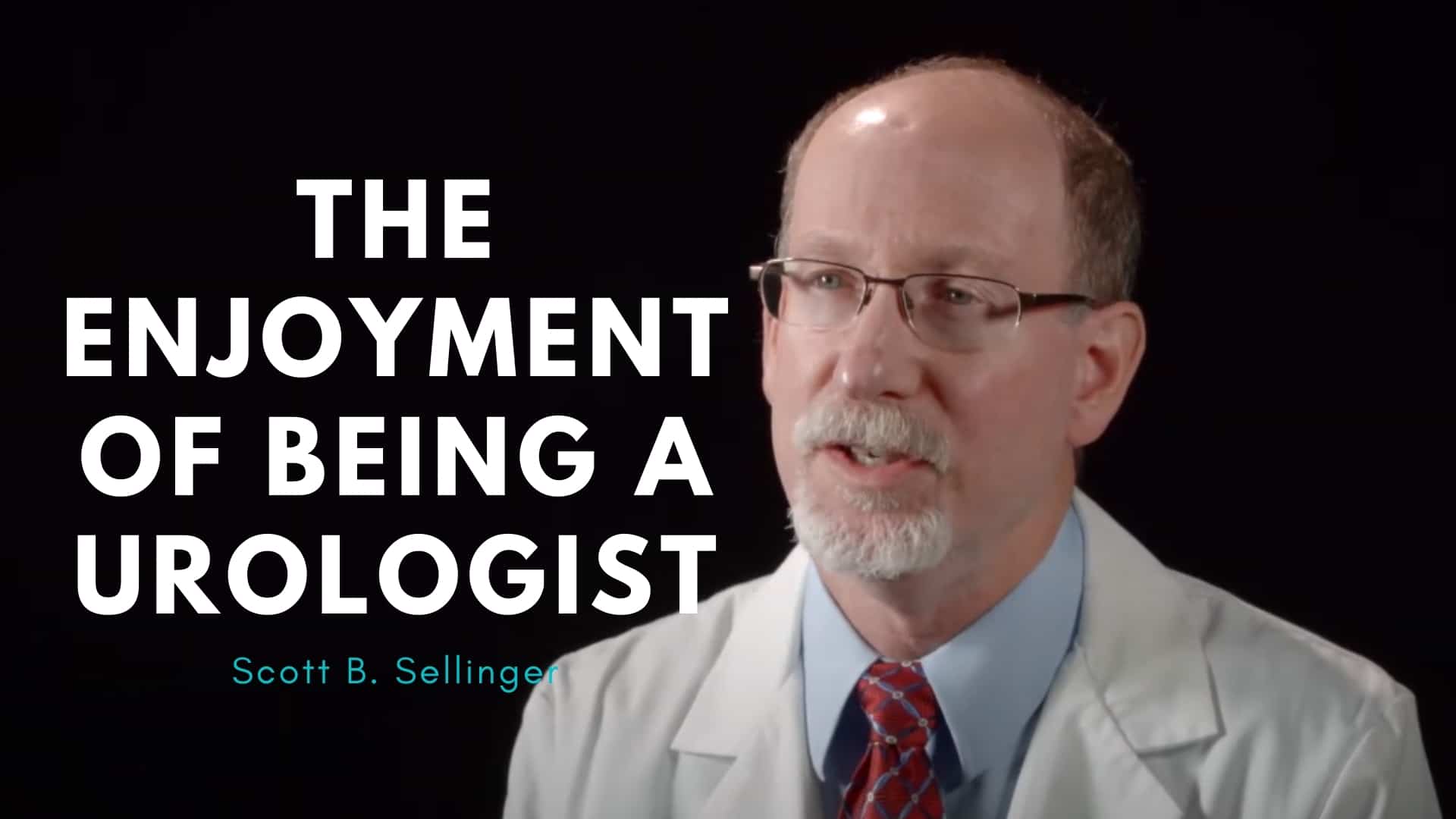
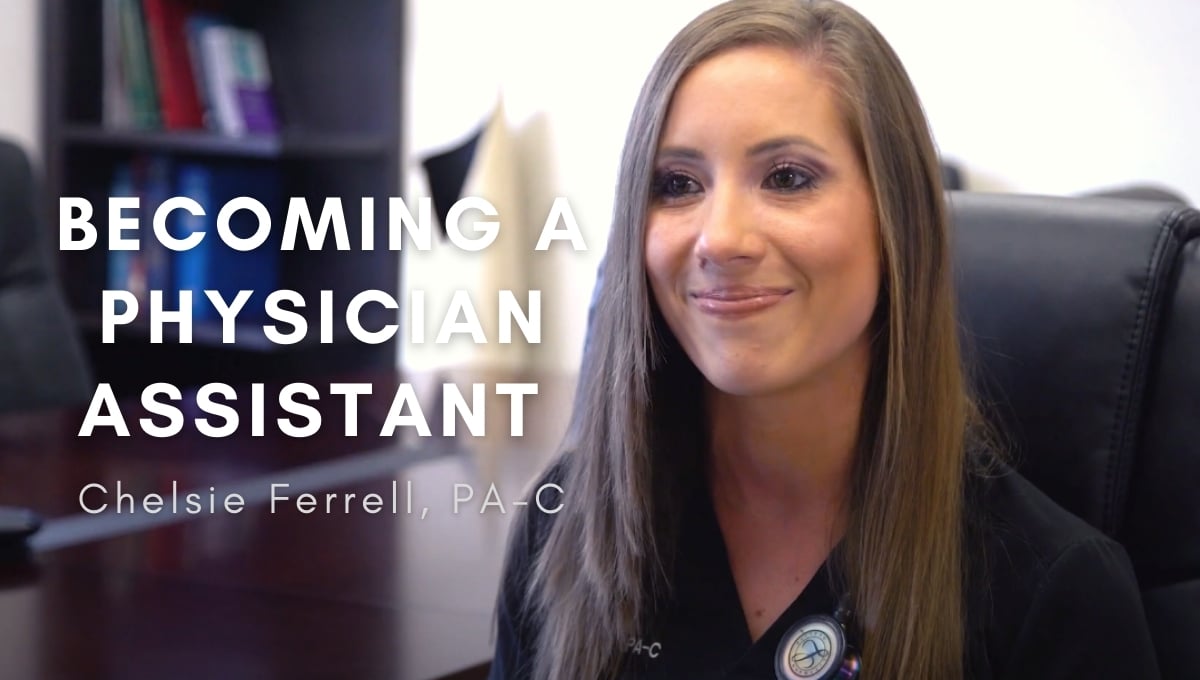
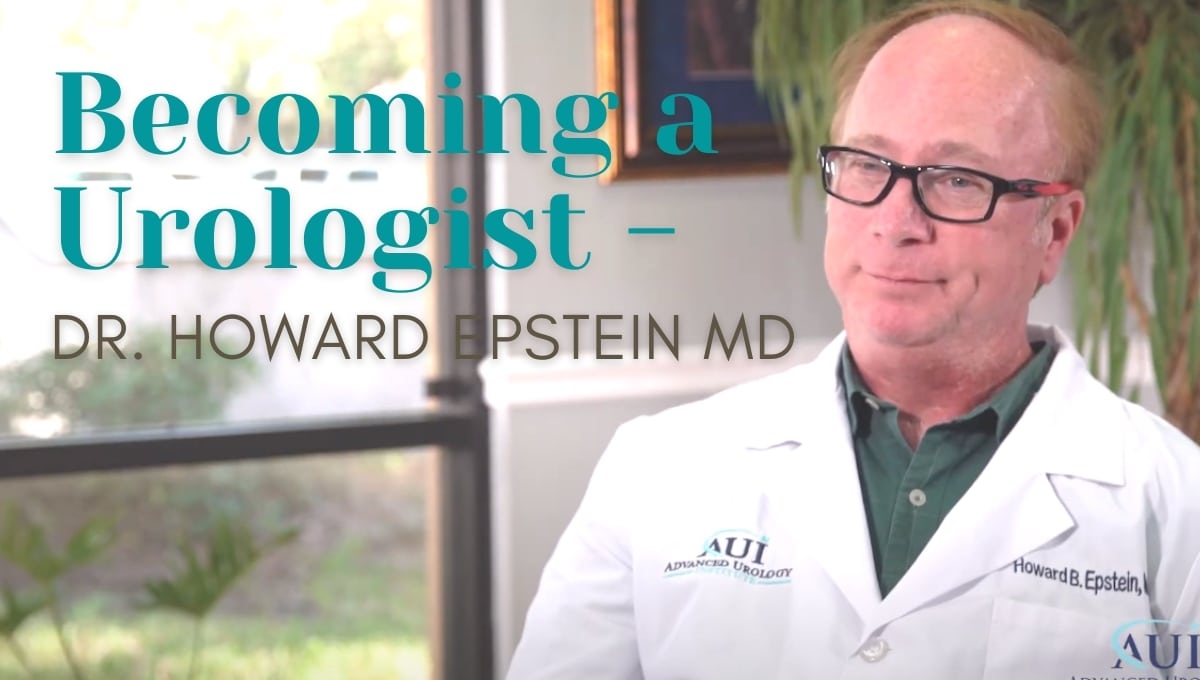
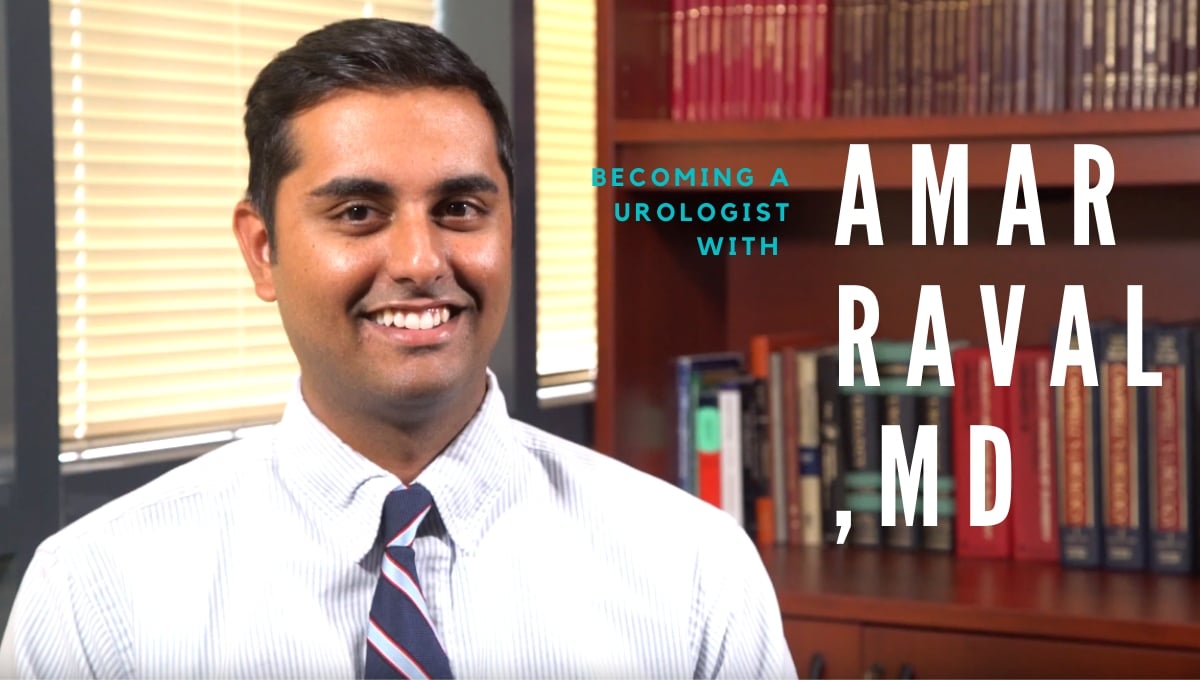
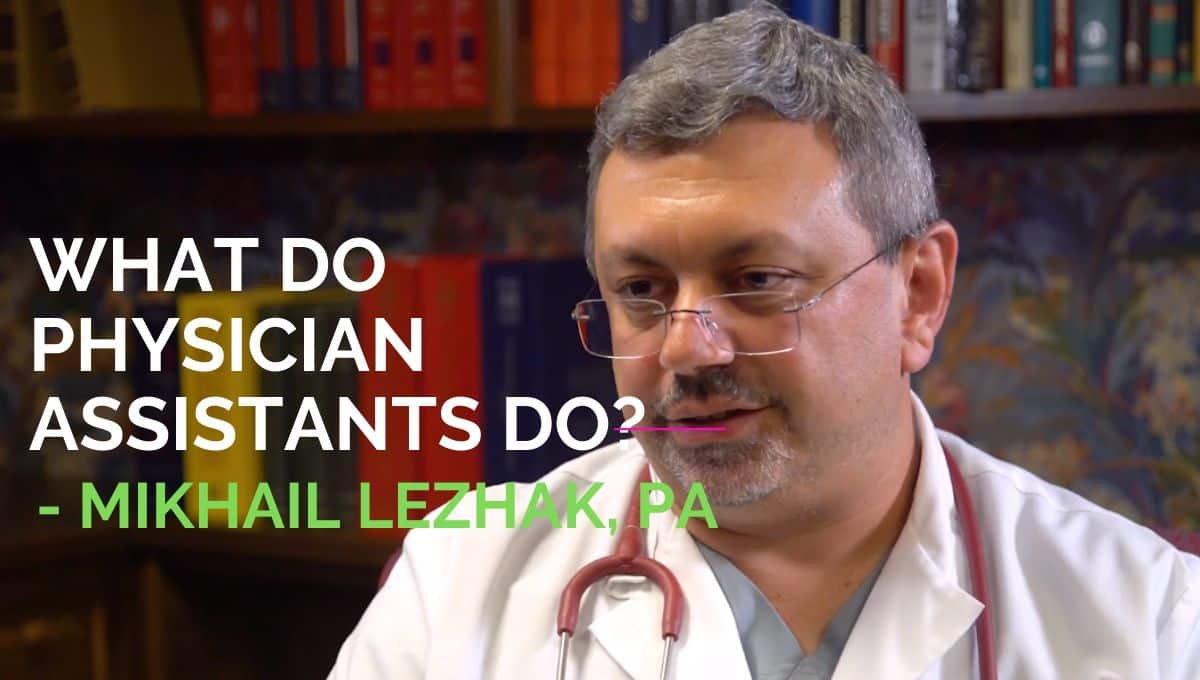
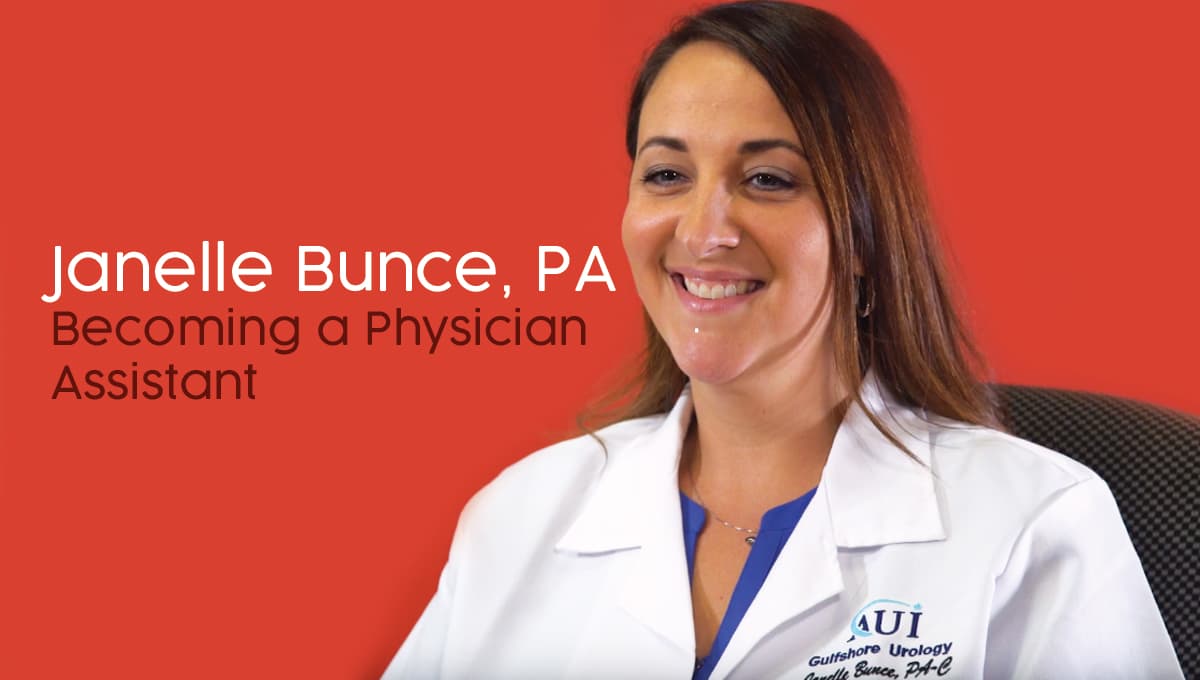
 Although they may not be doctors, physician assistants have some of the most important jobs in healthcare and carry a great deal of responsibility. They assist with surgeries, see patients independently and take an active role in decision making with the doctors. They are an important part of the patient experience and share in the satisfaction of participating in overall patient care.
Although they may not be doctors, physician assistants have some of the most important jobs in healthcare and carry a great deal of responsibility. They assist with surgeries, see patients independently and take an active role in decision making with the doctors. They are an important part of the patient experience and share in the satisfaction of participating in overall patient care.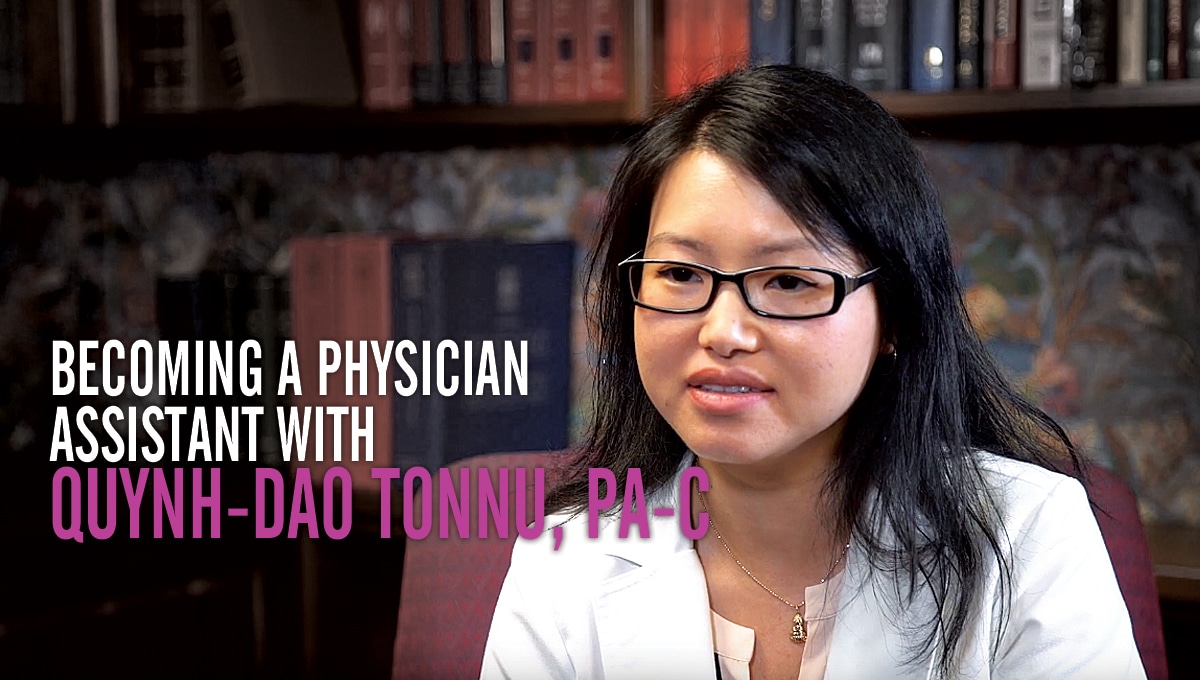
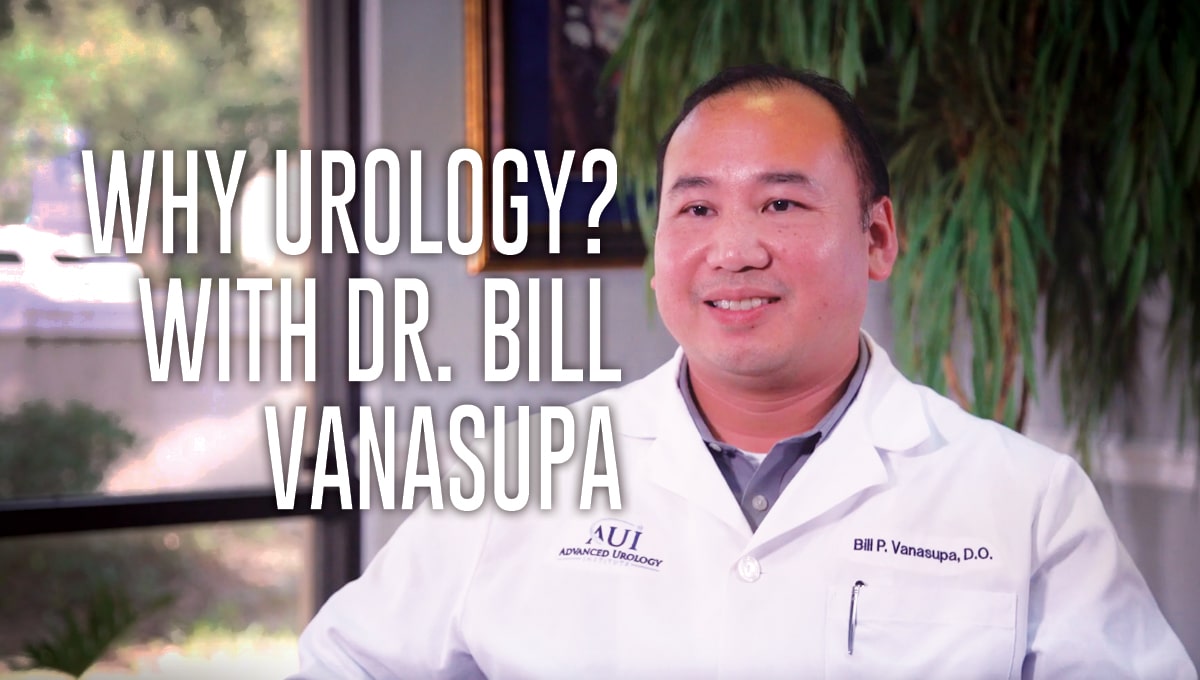
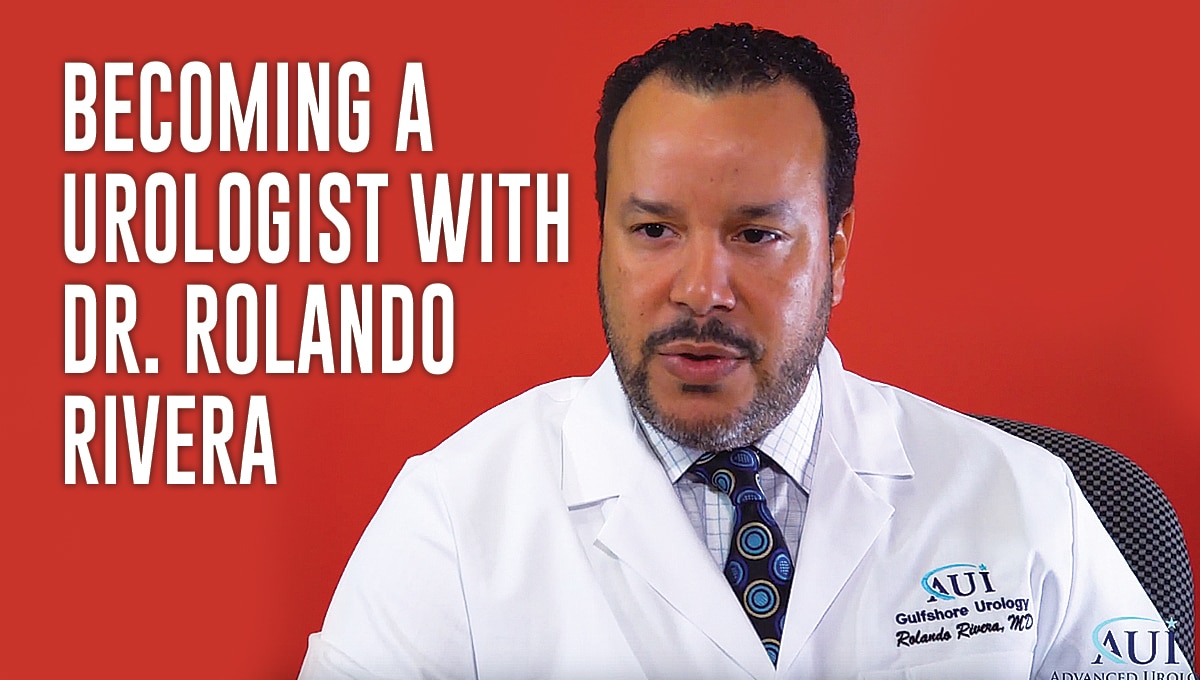
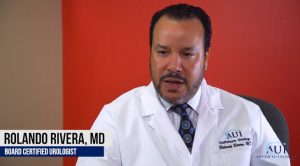 Becoming a urologist requires a special kind of person. Urology is one of the more challenging specialties a doctor can choose. Urological problems are broad and can encompass issues ranging from urinary incontinence, overactive bladder, vaginal prolapse and kidney stones to the advanced realm of pelvic surgery. Urologists are required to have a large skill set in order to take care of their patients.
Becoming a urologist requires a special kind of person. Urology is one of the more challenging specialties a doctor can choose. Urological problems are broad and can encompass issues ranging from urinary incontinence, overactive bladder, vaginal prolapse and kidney stones to the advanced realm of pelvic surgery. Urologists are required to have a large skill set in order to take care of their patients.